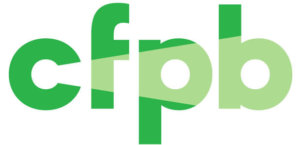June 7: Recent CFPB Activities
CFPB Launches Process to Recognize Open Banking Standards
The Consumer Financial Protection Bureau (CFPB) finalized a rule outlining the qualifications to become a recognized industry standard setting body, which can issue standards that companies can use to help them comply with the CFPB’s upcoming Personal Financial Data Rights Rule. Today’s rule identifies the attributes that standard setting bodies must demonstrate in order to be recognized by the CFPB. The rule also includes a step-by-step guide for how standard setters can apply for recognition and how the CFPB will evaluate applications.
The CFPB is working to accelerate the shift to open banking in the United States. In 2010, Congress passed into law new personal financial data rights for consumers. Guaranteeing a consumer’s right to their data will open up more opportunities for smaller financial institutions and startups offering products and services. However, these new rights have not taken full effect, because the CFPB never issued a rule. In October 2023, the CFPB proposed a rule to implement these rights and will finalize it in the coming months.
CFPB Warns Against Deception in Contract Fine Print
The Consumer Financial Protection Bureau (CFPB) today issued a circular warning against the use of unlawful or unenforceable terms and conditions in contracts for consumer financial products or services. Companies use this fine print tactic to try to trick consumers into believing they have given up certain legal rights or protections. When financial institutions take these types of actions, they risk violating the Consumer Financial Protection Act. Today’s warning is part of the CFPB’s broader efforts to ensure freedom and fairness in people’s interactions with financial institutions.
Many consumer contracts include terms and conditions that claim to limit consumer rights and protections. This fine print may just be an attempt to confuse people about their rights. A common example is the general liability waiver, which purports to fully insulate companies from suits even though most states have laws that create hosts of exemptions to these waivers.
PUBLISHED
CFPB Issues Nonbank Registration of Orders Final Rule and Executive Summary
Today, the CFPB issued a final rule related to nonbank registration of certain orders. The final rule requires certain nonbank entities to register information about their company and certain orders, as well as submit copies of those orders, to the CFPB.
The final rule is effective on September 16, 2024, and has a phased initial registration period by nonbank type that begins as early as October 16, 2024.
You can access the final rule and an executive summary here: www.consumerfinance.gov/rules-policy/final-rules/registry-of-nonbank-covered-persons-subject-to-certain-agency-and-court-orders/.
CFPB Creates Registry to Detect Corporate Repeat Offenders
CFPB Sues Student Loan Servicer PHEAA for Pursuing Borrowers for Loans Discharged in Bankruptcy
Today, the Consumer Financial Protection Bureau (CFPB) sued student loan servicer Pennsylvania Higher Education Assistance Agency (PHEAA), which does business as American Education Services (AES), for illegally collecting on student loans that have been discharged in bankruptcy and sending false information about consumers to credit reporting companies. The CFPB’s lawsuit asks the court to order PHEAA to stop its illegal conduct, provide redress to borrowers it has harmed, and pay a civil penalty.
PHEAA is a student loan servicer with its principal office in Harrisburg, Pennsylvania. It is a public corporation organized under the laws of the Commonwealth of Pennsylvania. As of December 2023, PHEAA serviced a portfolio of student loans worth roughly $17.8 billion.
 The Consumer Financial Protection Bureau
The Consumer Financial Protection Bureau